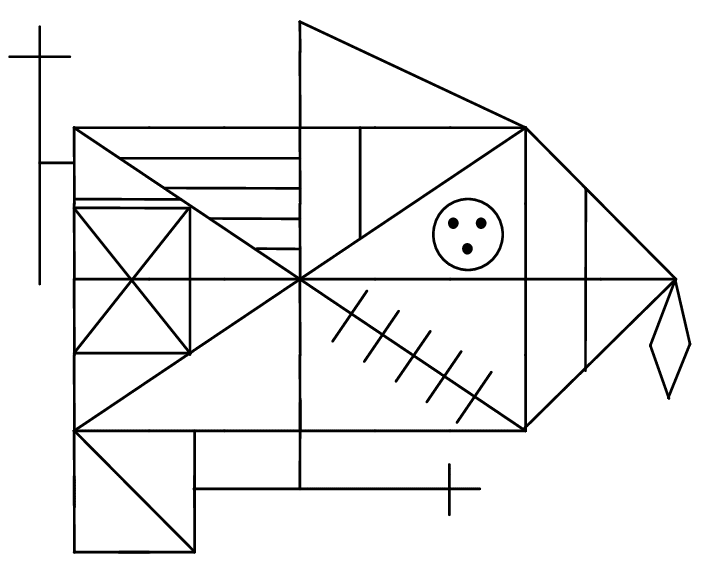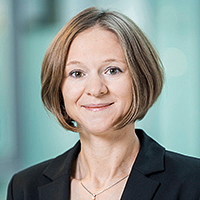Research Newsletter
The URPP Newsletter is published electronically and informs about current projects, news, and events at the URPP Dynamics of Healthy Aging (DynAge).
If you are interested in receiving this newsletter, please subscribe here.
Latest Newsletter

Editorial
URPP Dynamics of Healthy Aging: Phase III
Reports
Conference of the Society for Ambulatory Assessment 2021
MoHeaP 2021: Workshop on Mobility, Health, and Place
Women in Big Data Retreat: Coding. Career. Community.
Machine-Based Scoring of a Neuropsychological Test: The Rey-Osterrieth Complex Figure
Longitudinal Data Valorization Group: Sustainability, Efficiency and Innovation for Healthy Aging and Longevity Research
News
Successfully Defended Dissertations
New Staff
Prizes, Awards and Promotions
Events
Upcoming Events
Recent Events
Research Exchange
Editorial
URPP Dynamics of Healthy Aging: Phase III
Healthy Aging and Longevity has recently been described as “the most complex” challenge for research and innovation. As such, it requires coordinated inter- and transdisciplinary collaborations to provide data reflecting this complexity that includes many measurement levels. On this basis, new analytics, workflows, and technical structures for the safe and sustainable storage and integrative analysis of multi-scale high-density data from brain scans or sensor-based data collections with experimental and longitudinal studies are needed. Once new insights are generated, the results ideally are translated to practical applications. For this, the URPP DynAge has decided to work more closely with its translation experts of the Gerontology Center and UZH Innovation Hub to ensure optimal synergies in translating research findings into science-based applications.
As trust in an organization is extremely important to convince individuals to participate in basic healthy aging research, the URPP DynAge is supporting researchers to coordinate data collection protocols, develop analytics to extract more information from existing data, and share access to data to develop new analytics. Often, data about healthy aging are biased in what is being measured or who is being measured. One effort the URPP DynAge has made to reduce data bias is to provide cohort-sequential data on all ages, i.e., not stopping at age 80 or even 100. It has led to the generation of the largest dataset on 90+-year-olds in Switzerland with over 200’000 observations covering over 20 years and becoming part of the SWISS100, a nationwide centenarian study. There can also be biases when it comes to which contexts are being measured vs. excluded, or which type of automated analysis procedures (machine learning) are used to segment or annotate data. That is why the URPP DynAge organizes and encourages events, such as the LIFE Academy or the Conference on Ambulatory Assessment, that critically reflect on the concepts we use, such as healthy aging itself, and on potential biases and how to overcome them.
URPP DynAge members have realized that they can help to define research agendas in different ways. One example is the publication of a Supplement of The Journals of Gerontology: Psychological and Social Sciences on “Motivation and Healthy Aging” characterizing an exciting research field with many opportunities for individuals entering aging research with cross-disciplinary and international contributions based on a series of workshops supported by Velux Stiftung and coordinated with the World Health Organization (WHO). In addition, the URPP DynAge has actively helped to shape the collaboration themes with a number of strategic UZH partner universities, including the University of Queensland (Australia), Humboldt University (Germany), and King’s College London (UK).
Working with the WHO and a group of global collaborating centers on healthy aging, the URPP keeps making a difference. For its 3rd phase (2021-2024), it now includes new research groups on Method Development, Health Management Behaviors, and Motivation and Emotion, to cover more domains of healthy aging complexity and contextualized health. It also has established new Cross-Cutting Research Areas to stimulate interdisciplinary collaborations and innovations, such as Multiscale Integrative Healthy Aging Profile Data Analytics, Law and Ethics Research, Mobility Analytics for Healthy Aging, and Multimodal Data Integration. Joint workshops have already stimulated discussions, collaborations and increased the academic community committed to innovative healthy aging research. Together, we are proud that in its third phase the URPP is vibrant as ever and we look forward to seeing this transdisciplinary workbench and think tank for healthy aging and longevity flourish over the next years.
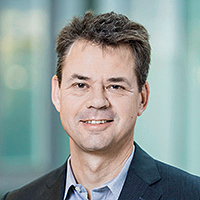 Prof. Dr. Mike Martin (Co-Director, URPP DynAge)
Prof. Dr. Mike Martin (Co-Director, URPP DynAge)
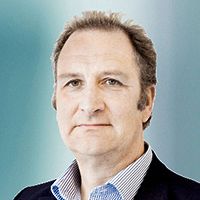 Prof. Dr. Lutz Jäncke (Co-Director, URPP DynAge)
Prof. Dr. Lutz Jäncke (Co-Director, URPP DynAge)
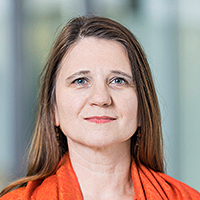 Prof. Dr. Alexandra M. Freund (Deputy Director, URPP DynAge)
Prof. Dr. Alexandra M. Freund (Deputy Director, URPP DynAge)
Reports
Conference of the Society for Ambulatory Assessment 2021
From June 30 thru July 1, 2021, we hosted the Conference of the Society for Ambulatory Assessment 2021, initially planned to take place in the UZH Main Building with its historic Aula, but finally moved to an online format due to the ongoing COVID-19 restrictions. Using a professional conference platform, we were able to engage with around 300 scholars during three half-days of live events and interactive discussions, including 3 keynote presentations, 234 individual talks that were part of 41 symposia, 11 paper sessions, 2 flash talk sessions, and 54 poster presentations. Attendance was international, with participants from 20 different countries.
This year’s conference theme was “Capturing Human Development Across Daily Life Contexts”. The keynote speakers emphasized different and complementary aspects of this theme. Prof. Dr. Ulrich Ebner-Priemer (Karlsruhe Institute of Technology, Germany) spoke about “Real-Time Analyses, Digital Phenotyping and Real-time Interventions” as three key components of an ambulatory assessment toolbox that uses a range of technological and analytical innovations to better understand the impact and dynamics of health parameters across adulthood. Focusing on adolescence, Prof. Dr. Candice Odgers (Duke University, USA) addressed the issue of how to best leverage digital tools to capture adolescents’ daily lives, with a detailed discussion on progress made and pitfalls to be managed. For example, using smartphones as data capture tools may seem as an innovative step compared to paper-pencil diaries or bulky pagers from former times, but in many of today’s Western societies, smartphones and digital addiction, particularly in adolescents, have received much scrutiny as well. The third keynote by Prof. Dr. Michaela Riediger (University of Jena, Germany) came full circle with her focus on lifespan development from adolescence to old age, illustrating a developmental perspective on the emotional side of everyday life. The URPP DynAge looks forward to further contributing to this exciting and emerging field for years to come.
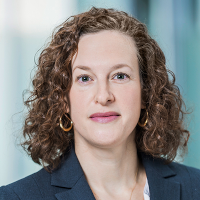 Dr. Christina Röcke (Deputy Director, URPP DynAge)
Dr. Christina Röcke (Deputy Director, URPP DynAge)
MoHeaP 2021: Workshop on Mobility, Health, and Place
The MoHeaP 2021 workshop on Mobility, Health and Place was held online from June 8-23, 2021, and was organized by URPP members (unless specified otherwise) Dr. Eun-Kyeong Kim, Dr. Christina Röcke, Dr. Camille Perchoux (Luxembourg Institute of Socio-Economic Research, Luxembourg), Dr. Lindsey Conrow (University of Canterbury, New Zealand), and Prof. Dr. Robert Weibel. MoHeaP 2021 aimed to bring together researchers from different disciplines who examine topics, trends and challenges in the domain of mobility, health, and place. The recent proliferation of data collected with mobile and sensing technologies provides opportunities to address novel research problems. Such high-resolution multi-sensor tools allow one to track individuals’ micro-scale mobility and challenge a more traditional concept of context with new space-time exposure measures. Multi-sensor approaches further enable researchers to assess additional dimensions of behaviors, environmental exposures, and emotional/physiological response data.
The workshop consisted of 17 interdisciplinary presentations grouped into three sessions: (1) Exposure, (2) Mobility Environments, and (3) Daily Mobility and Activity. In two discussion sessions, we addressed 6 key questions voted on by participants via a pre-workshop survey that focused on health in geospatial contexts and health-related constructs. In particular, we considered best practices, appropriate uses and potential biases of mobility data, integration of mobility and context, processing of real-life data with advanced algorithms to derive indicators, and statistical methods.
The workshop was designed to minimize one-way communications and maximize interactions among participants during live interaction days (June 22-23). All talks were pre-recorded and shared online from June 8, allowing participants to post questions and comments for each talk. With open and free registration, we attracted 90+ registrants and had 25+ attendees per day on June 22-23. Based on this initial success, we are keen to continue building this community moving forward.
 Dr. Eun-Kyeong Kim (Postdoc, URPP DynAge and Department of Geography)
Dr. Eun-Kyeong Kim (Postdoc, URPP DynAge and Department of Geography)
Women in Big Data Retreat: Coding. Career. Community.
Big data has become ubiquitous in the digital era, and advanced data analytical skills are more important than ever. At the same time, women are underrepresented in science, particularly in big data-related fields. The goal of the Women in Big Data Retreat, co-organized by former URPP members Dr. Jessica Oschwald, Dr. Stefanie Lindner, Dr. Tabea Meier, was to provide an opportunity for promising young female researchers to further strengthen their computational skills and learn about interesting career opportunities, all while connecting with like-minded peers. The retreat was supported by the Swiss National Research Program (NRP) 75 "Big Data" and the "Digital Society Initiative" of the University of Zurich.
After several postponements, the retreat took place in hybrid form and with various COVID-related safety measures. A group of 14 participants from various backgrounds (e.g., Psychology, Political Sciences, Neuroscience) eagerly awaited to participate in person and met from June 20-23 at the Ucliva Hotel (Waltensburg/Vuorz,), situated in the picturesque landscape of the Surselva region. Each day started early with a yoga session (led by co-organizer Dr. Jessica Oschwald) and continued with inspiring talks about applications of big data in and out of academia. Dr. Sabrina Guye (real-world data scientist at Roche and former URPP member) presented career opportunities in personalized health care, and Dr. Fenne große Deters (University of Potsdam, Germany) provided an overview of big data-related opportunities and challenges in academia. Moreover, Nadia Fischer, founder of witty works, shared valuable insights from her experience as a start-up founder.
Other highlights of the retreat included hands-on workshops on Python and dealing with large, complex datasets (led by URPP doctoral students Sabine Dziemian and Martyna Plomecka), as well as on how to negotiate confidently (led by communication trainer Gaby Rockmann-Partridge) specifically tailored to the needs of junior female scientists. All participants thoroughly enjoyed the inspiring atmosphere, fruitful discussions and the connections made during the retreat, which will hopefully continue to be a supportive peer-network in the future.
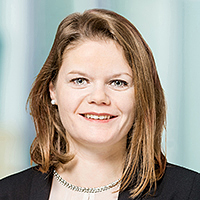 Dr. Tabea Meier (SNSF Early Postdoc.Mobility, Northwestern University, USA)
Dr. Tabea Meier (SNSF Early Postdoc.Mobility, Northwestern University, USA)
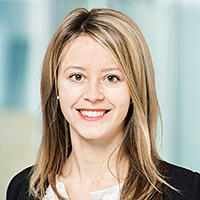 Dr. Stefanie Lindner (Psychiatrische Dienste Süd, Zentrum Linthgebiet)
Dr. Stefanie Lindner (Psychiatrische Dienste Süd, Zentrum Linthgebiet)
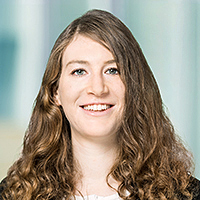 Dr. Jessica Oschwald, Real-world Data Scientist, PD Data Sciences, Roche UK
Dr. Jessica Oschwald, Real-world Data Scientist, PD Data Sciences, Roche UK
Machine-Based Scoring of a Neuropsychological Test: The Rey-Osterrieth Complex Figure
The new URPP DynAge Cross-Cutting Research Area "Methods Development" works on accelerating the objective diagnostic assessment of cognitive functions as an important intrinsic capacity within the healthy aging framework. Currently, neuropsychologists typically use paper-pencil tests to assess individual neuropsychological functions and brain dysfunctions, including memory, attention, reasoning and problem-solving. Most neuropsychologists around the world use the Rey-Osterrieth complex figure (ROCF; see below) in their daily clinical routine: This provides insights into a person’s nonverbal visual memory capacity, which is key to quality of life and typically changes in aging. The task is to first draw a complex figure with a template and then reproduce it from memory. To obtain a score for a person’s visual memory capacity, a trained clinician inspects the reproduced ROCF drawing and tracks deviations from the original figure to form a final score. Specifically, the figure is split into 18 identifiable areas, each of which is considered separately and marked on the accuracy of its position and the distortion exhibited. Currently, the quantitative scoring is undertaken manually in a subjective manner and has been criticized for its unreliability in a number of publications. The scoring might vary as a function of motivation and tiredness or because the clinicians may be unwittingly influenced by interaction with the patient. Moreover, inexperienced clinicians are prone to potential erroneous scoring. An objective and reliable machine-based scoring system is in great demand and would remove a time-consuming and tedious task from skilled clinicians (some schemes can take up to 15 minutes per figure).
Our research project aims to use artificial intelligence (machine learning) to automate the evaluation process of the ROCF test. The proposed project aims to first collect a large amount of ROCF drawings of different populations in terms of age and disease from different locations around the world. Then, "crowdsourcing" will be used to create an unbiased, coherent assessment for the ROCF drawings. "Crowdsourcing" uses the mass of internet users. That is, we recruit many Internet users and have them rate each figure by at least 10 users. The average of all the ratings then serves as the unbiased ratings (ground truth value). We also include controls to ensure that the Internet users' ratings are accurate. Subsequently, we train an artificial intelligence algorithm, based on the ROCF drawings and the average value of the internet users.
Our current machine-based automated quantitative scoring system outperforms both amateur raters and clinicians. Its scores are unbiased and, in most cases, very close to the ground truth. However, the results for some examples are still considerably off, calling for more research. The overarching goal is to further improve our machine-based scoring system in order to reach a prediction accuracy and functionality that allows us to bring a corresponding web application onto the market. The final version of the algorithm will then be integrated into web and smartphone applications where ROCF drawings can be photographed or uploaded and an automated score of the ROCF drawing will be generated.
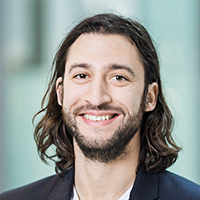 Prof. Dr. Nicolas Langer (Participating Professor, URPP DynAge)
Prof. Dr. Nicolas Langer (Participating Professor, URPP DynAge)
Longitudinal Data Valorization Group: Sustainability, Efficiency and Innovation for Healthy Aging and Longevity Research
The way in which scientific research in the social sciences is conducted has fundamentally shifted in the past decades. Researchers increasingly rely on digital(-ized) datasets and use computerized pipelines for the processing and analysis of those data. Furthermore, in psychology, there is an obvious trend towards multi-modal datasets (e.g., combining neuroimaging data, behavioral data, questionnaire data, health information, mobility data collected in real life, etc.) to give consideration to the complexity of the processes the researchers aim to investigate. Moreover, technical advances that facilitate data collection and data analysis contribute to the strong increase in the amount and complexity of the data produced. These developments, which can also be seen as important drivers of the era of “big and open data”, undoubtedly offer great opportunities for the social and health sciences.
The goal of this research group is therefore to foster the valorization of healthy aging and longevity research data by designing and setting up an ecosystem in which data are acquired, managed, analyzed, upvalued and shared and, thereby, enable different stakeholder groups (i.e., data providers, data analysts and data users) to better exploit them throughout their entire lifecycle.
We envision an ecosystem
a) that relies on a secure data core that is fed with different sorts of well-organized and documented data,
b) where added value is created to existing data by data augmentation and data analytics,
c) where transparent procedures and regulations are established for sharing and combining data,
d) that enables (automated) matchmaking to connect data producers and data users,
e) where education and consulting for different stages of the research life cycle is offered, and
f) that facilitates scientific exchange and supports scientific in- and outreach.
This ecosystem is meant to support the research process from initial planning to publication and translation with the particular focus on sustainability and innovation. To accomplish sustainability and efficiency in the use of data, techniques and knowledge, we aim to professionalize services for the stakeholders and involve multiple relevant disciplines (psychology, informatics, ethics and law, data science, etc.) to capitalize on their valuable domain-specific knowledge. Innovation plays a fundamental role in the design of the ecosystem, since major goals cannot be accomplished with existing concepts and technologies, but also in the output that can be achieved by making use of the ecosystem’s infrastructure and resources.
The URPP DynAge provides fertile ground to implement our vision of an Ecosystem for research data valorization as it assembles several research groups that committed themselves to the overarching goal of studying the maintenance and stabilization of quality of life and health in later adulthood and old age. The enormous amount of valuable, multi-modal and multi-domain longitudinal data that has been accumulated at the URPP during the last years serves as a starting point for designing the Ecosystem, for learning about stakeholder needs and constraints, and for developing new ideas on data acquisition, integration, and enhancement.
We are convinced that we can contribute to an attractive, sustainable and powerful research environment that takes care of the domain-general duties and responsibilities and provides innovative cross-cutting functions to support and advance domain-specific work. By engaging multiple stakeholders, also beyond academia, we are certain to increase the impact of our research and foster the uptake of our valuable data and research results, to consequentially translate those into practical use of high societal benefit and relevance.
News
Successfully Defended Dissertations
We congratulate Dr. Elisa Weber on her accomplishment and wish her all the best for her future endeavors!
Dr. Elisa Weber
Dr. Elisa Weber defended her dissertation with the title "Longitudinal Co-development of Well-being and Emotional Experiences in Dyadic Partner Relationships in Old Age" on July 26th, 2021 (main supervisors: Prof. Dr. Gizem Hülür, Prof. Dr. Mike Martin). She is now working as a postdoc in the Individual Differences and Assessment Group (Prof. Dr. Wiebke Bleidorn) at the Department of Psychology at the University of Zurich.
New Staff
We extend a warm welcome to our new colleagues Michael Balmer, M.Sc. and Dr. Julia Jockusch!
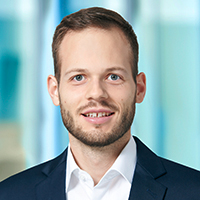
Michael Balmer, M.Sc.
- Doctoral Student – Research group “Mobility Analytics”
- Michael Balmer, M.Sc. investigates the impact of mobility on healthy aging in older adults.
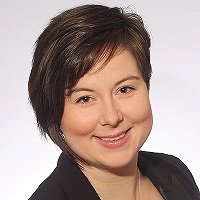
Dr. Julia Jockusch
- Research Scientist – Research group “Quality of Life in Dementia”
- Dr. Julia Jockusch studies the relationship between masticatory strength, masticatory efficiency, oral muscle physio-training and the severity of dementia.
Prizes, Awards and Promotions
We are proud to congratulate Dr. Damaris Aschwanden, Dr. Katharina Bernecker, Olenka Dworakowski, M.Sc., Prof. Dr. Gizem Hülür, Charlotte A. Kukowski, M.Sc., Dr. Minxia Luo, Dr. Theresa Pauly, and Martyna Beata Plomecka, M.Sc. on being recognized for their innovative research!
Dr. Damaris Aschwanden
Dr. Damaris Aschwanden (Florida State University, USA and former URPP DynAge doctoral student) is one of the three awardees of this year's Vontobel Award for Research on Ageing for her paper on “Is Personality Associated with Dementia Risk? A Meta-Analytic Investigation". This prestigious award, endowed by the Vontobel Foundation, supports gerontological research in Switzerland from any field of science to raise awareness of issues around aging in society among the general public.
Dr. Katharina Bernecker
Dr. Katharina Bernecker (URPP DynAge and Department of Psychology) received this year's Open Science Prize of the UZH Psychology Department in the postdoc paper category for her publication on “Beyond Self-Control: Mechanisms of Hedonic Goal Pursuit and Its Relevance for Well-Being“. This award recognizes outstanding research that has implemented open science practices in an exemplary manner.
Olenka Dworakowski, M.Sc.
Olenka Dworakowski, M.Sc. (URPP DynAge and Department of Psychology) was awarded the third-place poster prize at the MADOKO in the doctoral student category for her poster on “The Language of the Covid-19 Pandemic - Associations between official communication and collective emotional responses across countries”. The MADOKO is a yearly poster conference of the UZH Department of Psychology.
Prof. Dr. Gizem Hülür
Prof. Dr. Gizem Hülür (former URPP DynAge assistant professor) was offered and has accepted the Chair of Developmental and Educational Psychology at the University of Bonn, Germany.
Charlotte A. Kukowski, M.Sc.
Charlotte A. Kukowski, M.Sc. (URPP DynAge and Department of Psychology) was awarded the second-place poster prize at the MADOKO in the doctoral student category for her poster on “We're All in This Together: Cooperative Self-Control in Public Support for Behavioral Climate Policy”. The MADOKO is a yearly poster conference of the UZH Department of Psychology. She was also selected to represent UZH at the League of European Research Universities (LERU) Doctoral Summer School this year and was also chosen as one of ten junior scientist speakers for this year's German Psychological Society Environmental Psychology Summer School, funded by the German Federal Agency for Nature Conservation.
Dr. Minxia Luo
Dr. Minxia Luo (URPP DynAge) received this year's FAN Award in the Arts and Social Sciences. This award, which is supported by the “Fonds zur Förderung des akademischen Nachwuchses” of UZH Alumni, recognizes outstanding scientific achievements of advanced Ph.D. candidates and early postdoctoral researchers at UZH engaged in research projects of societal relevance and applying inter- or transdisciplinary approaches or methods.
Dr. Theresa Pauly
Dr. Theresa Pauly (URPP DynAge and Department of Psychology) is one of the three awardees of this year's Vontobel Award for Research on Ageing for her paper on “Everyday Associations Between Older Adults' Physical Activity, Negative Affect, and Cortisol”. This prestigious award, endowed by the Vontobel Foundation, supports gerontological research in Switzerland from any field of science to raise awareness of issues around aging in society among the general public. She also received the American Psychological Society Division 20 Dissertation Award in Psychology of Aging for her doctoral work at the University of British Colombia, Canada. This award recognizes a doctoral student or recent graduate for exemplary research contributing to theory or practice of adult development and aging.
Martyna Beata Plomecka, M.Sc.
Martyna Beata Plomecka, M.Sc. (URPP DynAge and Department of Psychology) received this year's Open Science Prize of the UZH Psychology Department in the graduate student paper category for her publication on “Aging Effects and Test–Retest Reliability of Inhibitory Control for Saccadic Eye Movements”. This award recognizes outstanding research that has implemented open science practices in an exemplary manner.
Events
Upcoming Events
Oct. 28th – 30th, 2021
50th Motivational Psychology Colloquium (MPK) in Zurich
Organized by Prof. Dr. Veronika Brandstätter and Dr. Katharina Bernecker (both URPP DynAge) in conjunction with the “Institut für Selbstmanagement und Motivation Zürich”
Mar. 4th, 2022
Conference - "Musik in der Pflege und Betreuung von an Demenz erkrankten Menschen" in Niederwil
Organized by the Center for Gerontology and the URPP DynAge at the University of Zurich, and "Reusspark, Zentrum für Pflege und Betreuung, Niederwil"
May/June, 2022
2nd UZH Healthy Longevity Innovation Days in Virtual Form
Organized by the URPP DynAge with the Innovation Hub at the University of Zurich
Sept. 4th – 6th, 2022
17th Conference of the Swiss Psychological Society 2022 in Zurich
Organized by Prof. Dr. Johannes Ullrich (Department of Psychology at the University of Zurich), Prof. Dr. Veronika Brandstätter-Morawietz (URPP DynAge), Dr. Claudia Hagmayer (URPP DynAge), Prof. Dr. Mike Martin (URPP DynAge), Susan McVey (Department of Psychology at the University of Zurich), and Dr. Christina Röcke (URPP DynAge)
Recent Events
April, 2021
Kickoff Meeting for the 3rd Phase of the URRP DynAge in Virtual Form
Organized by Dr. Claudia Hagmayer (URPP DynAge)
June, 2021
Workshop on “Women in Big Data Retreat: Coding. Career. Community.” in Waltensburg/Vuorz
Organized by former URPP DynAge members Dr. Tabea Meier (SNSF Early Postdoc.Mobility, Northwestern University, USA), Dr. Stefanie Lindner (Psychiatrische Dienste Süd, Zentrum Linthgebiet), and Dr. Jessica Oschwald (Real-world Data Scientist, PD Data Sciences, Roche UK)
June, 2021
MoHeaP 2021: Workshop on “Mobility, Health, and Place” in Virtual Form
Organized by Dr. Eun-Kyeong Kim and Prof. Dr. Robert Weibel (both URPP DynAge and Department of Geography at the University of Zurich), and Dr. Christina Röcke (URPP DynAge), among others
June, 2021
1st UZH Healthy Longevity Innovation Days in Virtual Form
Organized by Prof. Dr. Mike Martin and Dr. Marc Grosjean (both URPP DynAge) with the Innovation Hub and International Relations Office at the University of Zurich
June-July, 2021
8th Conference of the Society for Ambulatory Assessment (SAA) in Virtual Form
Organized by the URPP DynAge
September, 2021
21st Zurich Gerontology Day 2021 in Zurich
Organized by the Center for Gerontology at the University of Zurich and the URPP DynAge
Research Exchange
Prof. Dr. Peter Kuppens, Visiting Professor (April – July, 2021) from KU Leuven, The Netherlands
Prof. Dr. Richard Siow, Visiting Professor (mid June – mid September, 2021) from King’s College London, UK
Selected Recent Publications
The full list of URPP DynAge publications can be found online here.
Allahbakhshi, H., Röcke, C., & Weibel, R. (in press). Assessing the transferability of physical activity type detection models: Influence of age group is underappreciated. Frontiers in Physiology: Computational Physiology and Medicine.
Dworakowski, O., Huber, Z. M., Meier, T., Boyd, R. L., & Horn, A. B. (2021). Emotion regulation across the lifespan: Age differences in intrapersonal and interpersonal strategies for the adjustment to the COVID-19 pandemic in four countries. Aging & Mental Health: Epub ahead of print.
Freund, A. M., Hennecke, M., Brandstätter, V., Martin, M., Boker, S. M., Charles, S. T., Fishbach, A., Hess, T. M., Heckhausen, J., Gow, A. J., Isaacowitz, D. M., Klusmann, V., Lachman, M. E., Mayr, U., Oettingen, G., Robert, P., Röcke, C., Rothermund, K., Scholz, U., Tobler, P. N., Zacher, H., & Zadeh, R. S. (2021). Motivation and healthy aging: A heuristic model. Journals of Gerontology, Series B: Psychological Sciences and Social Sciences, 76(Supplement), S97-S104.
Giroud, N., Keller, M., & Meyer, M. (2021). Interacting effects of frontal lobe neuroanatomy and working memory capacity to older listeners' speech recognition in noise. Neuropsychologia, 158, 107892.
Höltge, J., Mc Gee, S. L., Maercker, A., & Thoma, M. V. (2021). Steeling in later life: Exploring age-specific effects of varying levels of stress on psychological resilience. International Journal of Aging & Human Development, 92(2), 170-196.
Jäncke, L., Liem, F., & Mérillat, S. (2021). Are language skills related to structural features in Broca's and Wernicke's area? European Journal of Neuroscience, 53(4), 1124-1135.
Jockusch, J., Hopfenmüller, W., & Nitschke, I. (2021). Chewing function and related parameters as a function of the degree of dementia: Is there a link between the brain and the mouth? Journal of Oral Rehabilitation, 48(10), 1160-1172.
Seifert, A., Perrig-Chiello, P., & Martin, M. (2021). Bildungs- und Lernbedürfnisse im Alter. Zürich: U3/SAGW.
Süss, H. C., Willi, J., Grub, J., & Ehlert, U. (2021). Estradiol and progesterone as resilience markers? – Findings from the Swiss Perimenopause Study. Psychoneuroendocrinology: 105177.
Weber, E., & Hülür, G. (2021). Co-development of couples' life satisfaction in transition to retirement: A longitudinal dyadic perspective. Journals of Gerontology, Series B: Psychological Sciences and Social Sciences, 76(8), 1542-1554.
